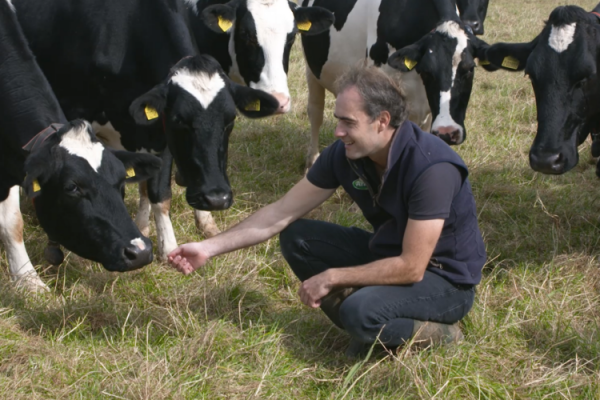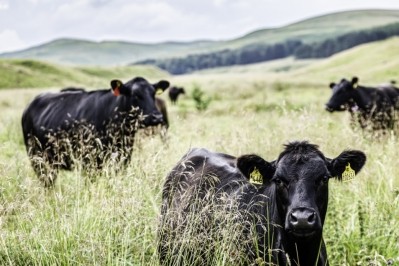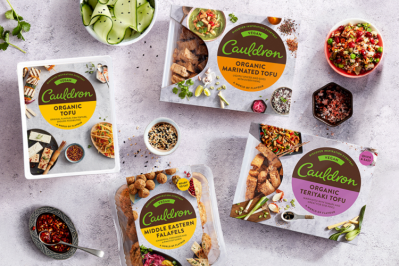Starbucks and Arla talk low carbon dairy tie-up: ‘Partnership is integral to sustainable food production’
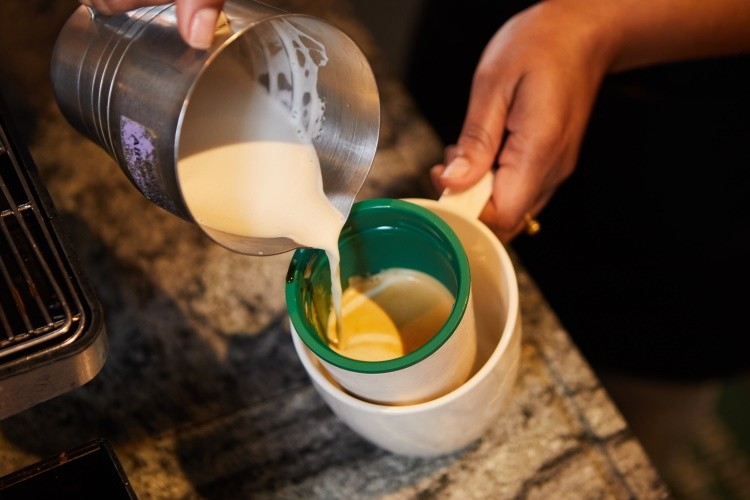
By 2030, the coffee chain has said it wants to achieve a 50% reduction in emissions. This is the initial science-based target on the road to Starbucks' ultimate aim - to become a 'resource positive company'. This means storing more carbon than it emits, eliminating waste and generating more fresh water than its operations use.
Dairy emissions account for 22% of Starbucks’ global carbon footprint. To meet its sustainability ambitions on carbon, the coffee chain giant will need to address the footprint of the dairy it sources.
“As a global business, we continue to innovate and explore different scalable options that ensures we give more than we take from the planet as part of our wider ambitions of becoming a resource positive company,” Alex Rayner, General Manager at Starbucks UK, told FoodNavigator.
The company is dedicated to helping addressing the emissions created within its supply chain as well as those generated by its own operations. “Starbucks is committed to expanding our environmentally friendly menu options, and purchasing sustainable dairy will help ensure that best practice carbon reduction strategies are being implemented across our entire milk and dairy alternative selection, to suit all customer taste preferences.”
To this end, Starbucks has partnered with farmer-owned dairy cooperative Arla Foods on a three-year pilot that aims to create an ‘industry leading’ sustainable sourcing blueprint. This blueprint, Starbucks said, will then be used to support its dairy suppliers across Europe, the Middle East and Africa.
“This programme will help ensure that best practice carbon reduction strategies are being implemented across our entire milk and dairy alternative selection,” Rayner predicted.
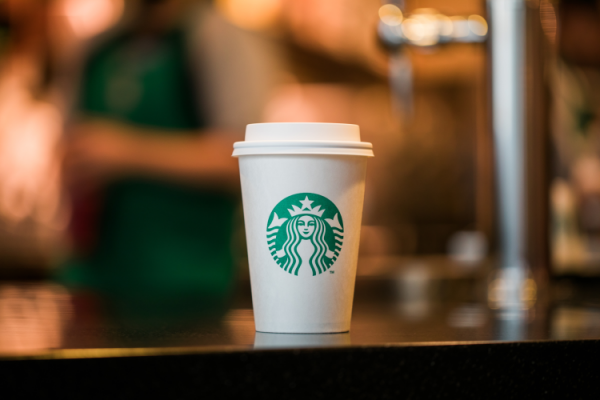
Partnering with Arla ‘the obvious choice’
Suggesting that Arla’s farmer-owners are ‘some of the most carbon efficient dairy farmers in the world’, Starbucks said the cooperative was the ‘obvious choice’ to work with on its journey to becoming ‘resource positive’.
On average, Arla farmers produce raw milk with a footprint of 1.15 kg of CO2e per kilo of milk. According to the UN’s FAO, global milk production emits an average of 2.5kg of CO2e per kilogram of milk.
“Starbucks and Arla share a commitment to upholding the highest standards in agriculture. As a farmer-owned business, Arla’s approach – including their cooperative principles – make them the right partner for us,” Rayner explained.
Like Starbucks, Arla has set its own targets to reduce the carbon impact of dairy. The milk producer has said it wants to cut GHG emissions by 30% per kilo of milk over the next decade as it works towards a target of being carbon neutral by 2050.
“It is a huge testament to the sustainable farming practice of our owners that Starbucks has chosen Arla to support its sustainable sourcing development work. Our carbon net zero ambition recognises the importance of both lowering emissions and providing a helping hand to nature, but it is hugely important that Starbucks has also acknowledged the importance of taking a farmer first approach to deliver this,” Graham Wilkinson, Group Senior Agriculture Director at Arla Foods commented.
So, how will the tie-up with Starbucks complement Arla’s existing work to reduce emissions?
“Partnership is integral to sustainable food production, and it’s important for Arla to work with customers who share its values, understand the challenges, and work together to move towards a more sustainable food system. We look forward to working with Starbucks to develop new industry innovations which will reduce greenhouse gas emissions across both our supply chains,” Wilkinson told FoodNavigator.
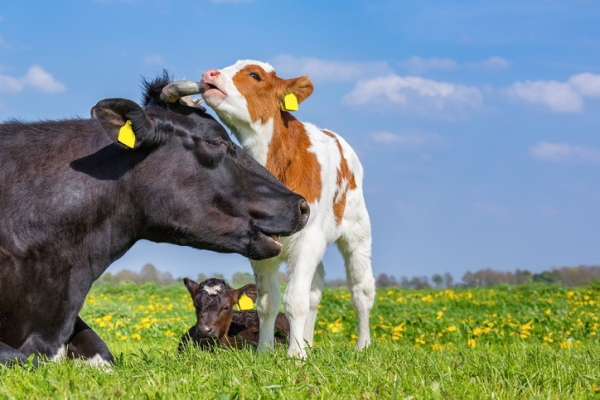
Pilot focuses on environment, welfare and profitability
“To reach our Net Zero goals and protect our planet, we must innovate and collaborate to accelerate reductions in the emissions associated with dairy production. Our collaboration with Starbucks will help to advance our work identifying innovative new farming practices and expand our learnings from the UK across EMEA through the development of a sustainable dairy sourcing blueprint,” Williamson stressed.
The tie-up will see Starbucks work directly with 14 Arla farmers in the UK to identify ways to ‘significantly reduce’ the emissions associated with dairy production.
Starbucks and the selected Arla farmers will focus on three key areas: environmental stewardship, animal health and welfare, and ensuring profitability for the farmers. The approach will leverage farm standards programme Arla UK 360.
The sourcing blueprint will be underscored by Arla’s sustainability research and development work. This has seen the 9,400 dairy farmers that own Arla Foods working to produce more sustainable dairy for over two decades. At the heart of its production methods are emissions reductions, actions that boost natural cycles and a commitment to some of the highest standards of animal welfare.
The efforts will also be independently validated by a third party, who will help support and advise on developing industry best practices, Arla and Starbucks said. Starbucks will also be working with scientists from The Nature Conservancy, an environmental stewardship non-profit who will support the partnership.
Mark Glanvill, one of the dairy farmers participating in the scheme, expressed his ‘excitement’ to ‘go on this journey with Starbucks’.
Glanvill farms 280 cows on his family farm in the Southwest of England. To reduce his carbon footprint, he already focuses on limiting the feed brought on farm, using natural fertilisers and reducing chemical use where possible.
On farm, Glanvill also calculates his carbon footprint annually to identify ongoing areas where he can continue reducing his emissions. This reflects Arla’s data-driven approach to sustainable dairy. Earlier this year, the cooperative launched Climate Checks, a programme that leverages the power of big data to support a transition to low-carbon production.
But innovation comes at a price. For dairy farmers who want to transition to more sustainable production systems, the cost and profitability equation is key, Glanvill explained. “Whilst Arla’s dairy farmers are at the forefront of reducing emissions of dairy, it has to be recognised that this comes at a cost to production, our action can only be as fast as our finances allow.
“In joining the Arla UK 360 programme, Starbucks has shown recognition of this whilst its blueprint ambitions also demonstrate an understanding that sustainable sourcing must meet the criteria of good nutrition made with lower emissions and a helping hand for nature.”
